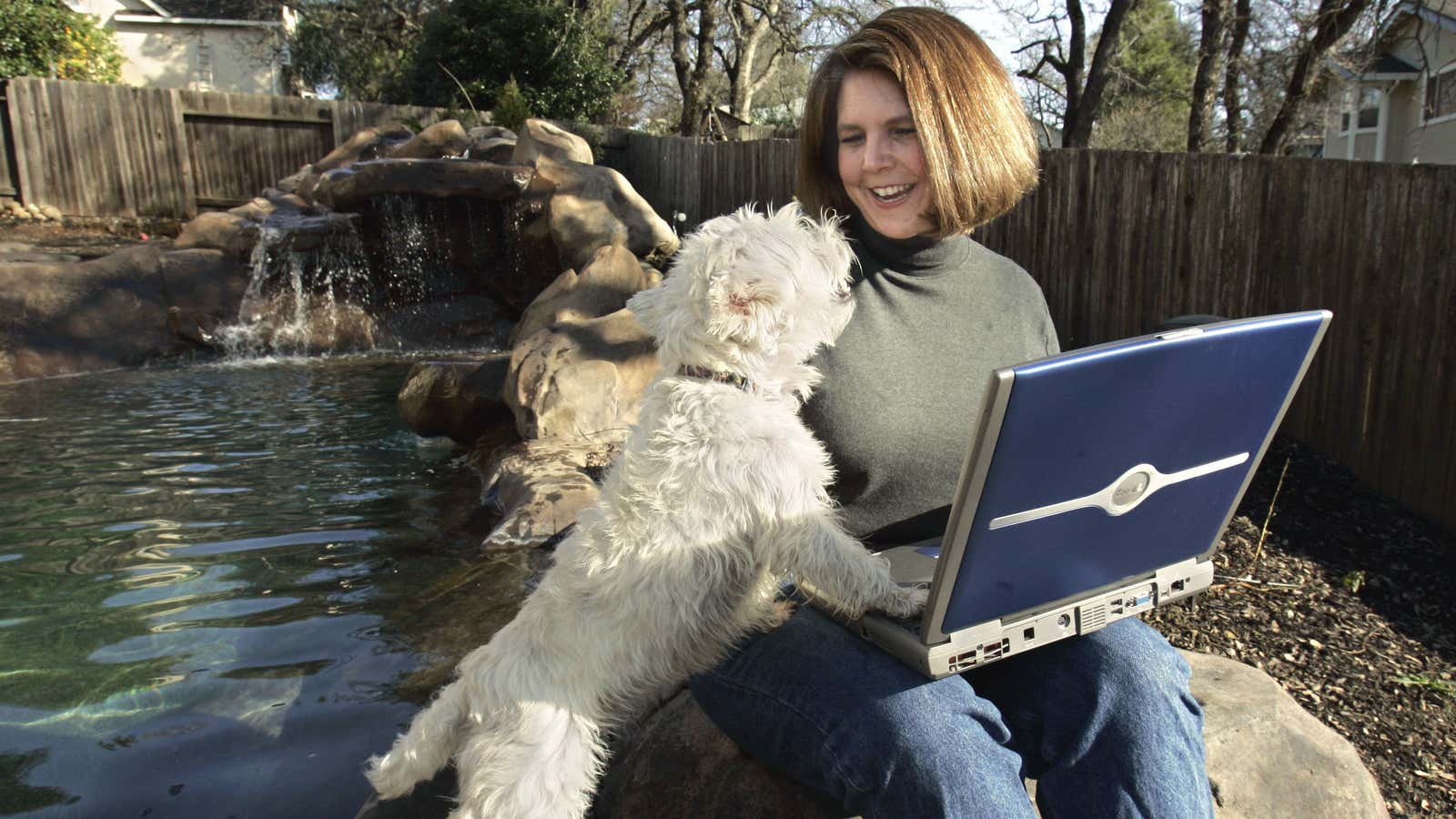Remote work is dying. And also is the future. It’s a productivity booster and a drag on group learning; the key to work-life balance, but also a conduit through which the work day extends into after hours at home.
It is, in other words, a hotly debated topic.
But for all the talk and think pieces about the blessings/curses of remote work, there’s little acknowledgement that the debate refers to an option (some would say obligation) disproportionately given to wealthy, well-educated workers.
Less educated, poorer people are much less likely to have the option (or the mandate) to work some hours from home, according to newly released data from the US Bureau of Labor Statistics.
According to the survey, which was administered in 2016, less than 9% of workers older than 25 who do not have a high school diploma report doing work from home on an average day, while more than 40% of workers with advanced degrees say they do some work at home. As US workers’ educational attainment rises, so does their likelihood of working at home.
Higher earners are also more likely to work from home than those who earn less. Of employees who typically made less than $581 per week, only around 9% say they did some work at home, while 33% of those who made $1,441 or more per week report doing so.
The trend isn’t exactly mysterious: Industries such as service and transportation, which according to the survey have a low work-at-home rate, provide some of the lowest paying jobs.
Workers across all groups who said they worked from home spent 3.1 hours doing so on an average day, and the workplace is still a much more common place to work. While about 20% of all workers say they do some work at home on an average day, around 80% say the same about the office (survey participants could choose both options). Doing some work from home is not even close to being a typical arrangement, but if you’re rich and well-educated, it might seem closer.
